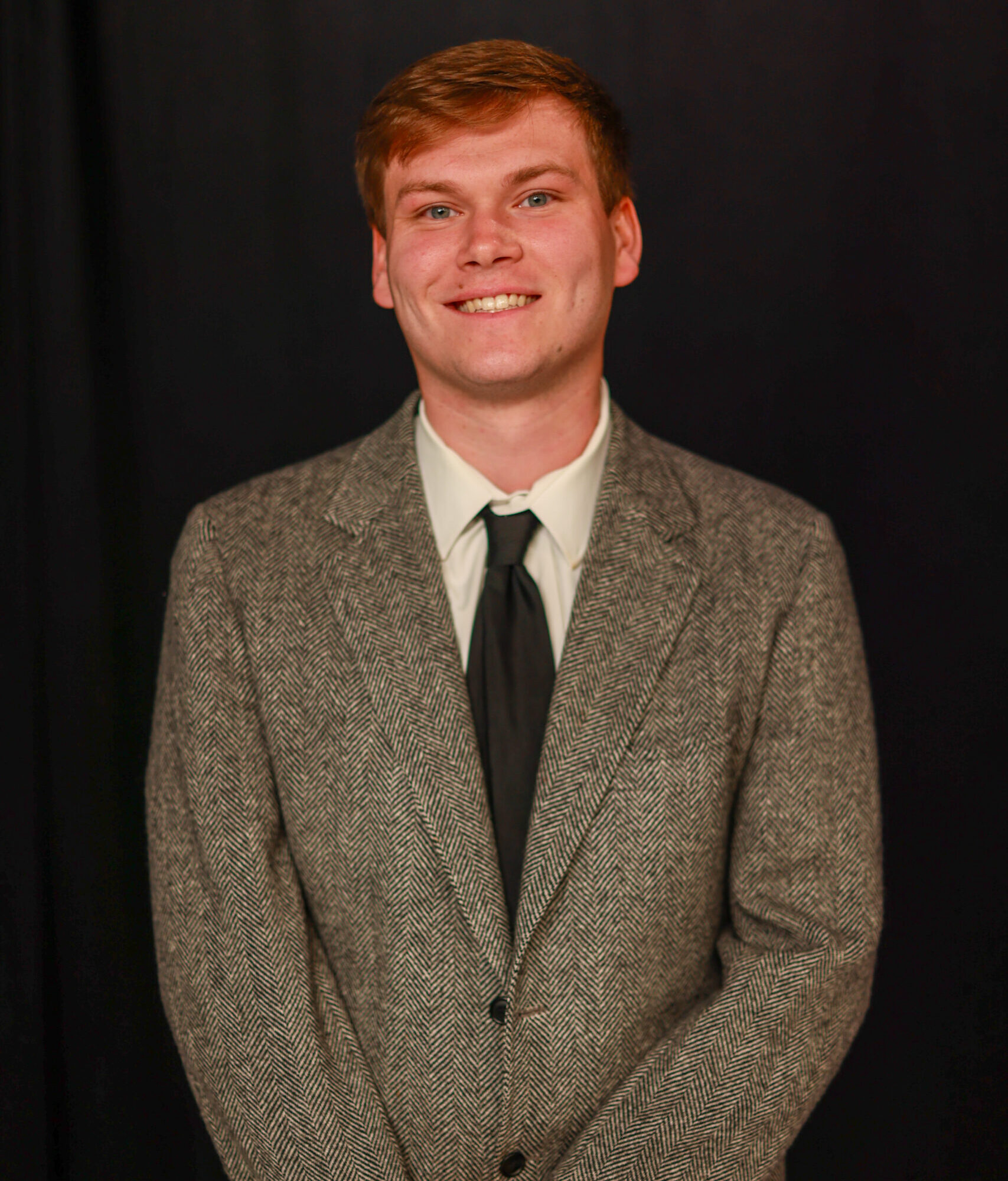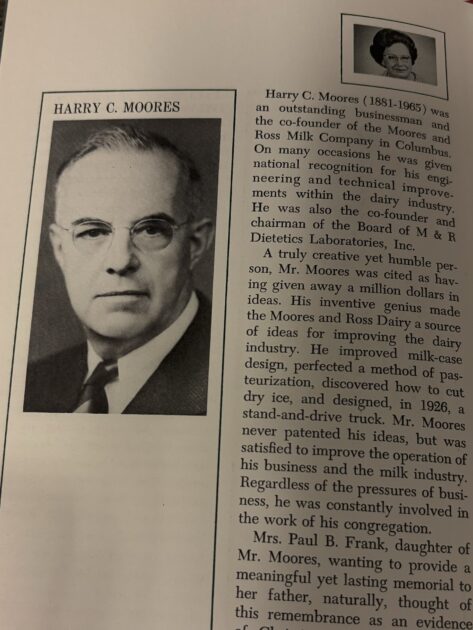
A photograph of Julius W. Schaaf featured in a news article from 1962. Photo by Charlie Rinehart.
The everyday routine of going to the same classes and doing the same thing can often lead students to stop paying attention to what it is they’re doing or where they’re going. It is important to pay attention to the buildings on campus, as almost every building is named after someone important to the university and/or the Columbus area.
Harry C. Moores (1881-1965)
The Student Union, home of One Main Café, the Main Dining Room, the Office of Student & Community Engagement and the Office of Diversity, Equity and Inclusion is named after Harry C. Moores. As a businessman, Moores was the co-founder of the Moores and Ross Milk Company in Columbus and the co-founder and chairman of the Board of M&R Dietcis Laboratories, Inc.
According to a dedication bulletin found in the university archives, Moores “improved milk-case design, perfected a method of pasteurization, discovered how to cut dry ice and designed, in 1926, a stand-and-drive truck.” His daughter, Jean Moores Frank, decided to dedicate the university’s Student Union to her father as an honor to his achievements in the business industry and his Christian stewardship.
H.L. Yochum (1903-1974)
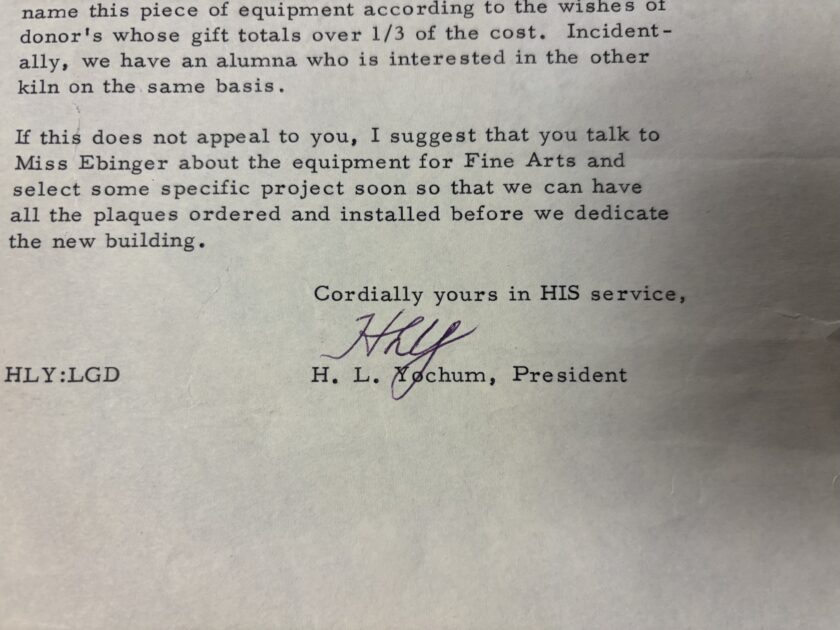
Youchum Hall, the location of the Office of the Registrar, Financial Aid and Student Success is named after Harold Leland Yochum. Yochum was the ninth president of the university, serving from 1946 to 1969. Before becoming president, Yochum attended the university and taught courses there in the 1920s after graduating.
In 1928, Yochum became an ordained Lutheran pastor, and served at churches all around Ohio and Michigan. After his time as a pastor, Yochum first became president of the Ohio College Association before landing his presidency at the university, where he served until his retirement, five years before his death.
Everette E. Kerns (1901-1994)
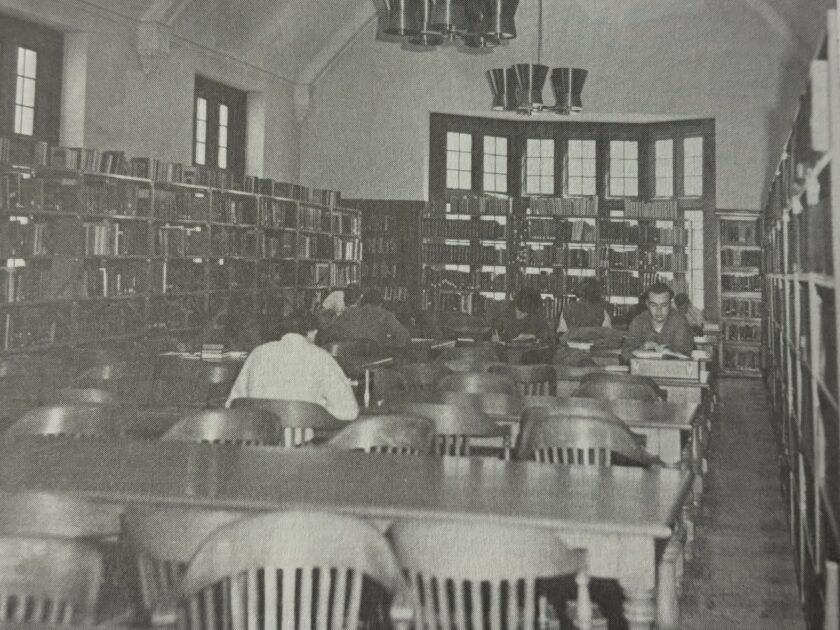
The Kerns Religious Life Center is named after Everette E. Kerns. Kerns also attended the university, but only for two years before transferring to Carnegie-Mellon University to study engineering. According to the pamphlet from the Dedication Ceremony of the Kerns Religious Life Center in 1988, once Kerns graduated from Carnegie-Mellon, he accepted a job working for Standard Oil of Ohio and Exxon. He retired in 1960.
“Everette’s generosity toward Capital University began in 1963 when he signed his first charitable gift annuity agreement with the university,” reads the bulletin. “Since that time he has entered into six additional agreements with a total principal amount of more than $700,000.”
After Kerns’s wife, Marie, died in 1986, Kerns decided to gift the Kerns Religious Life Center to the university in honor of his wife. As of the time the religious life center was built, Everette E. Kerns was “the largest individual donor to the university in Capital’s history.”
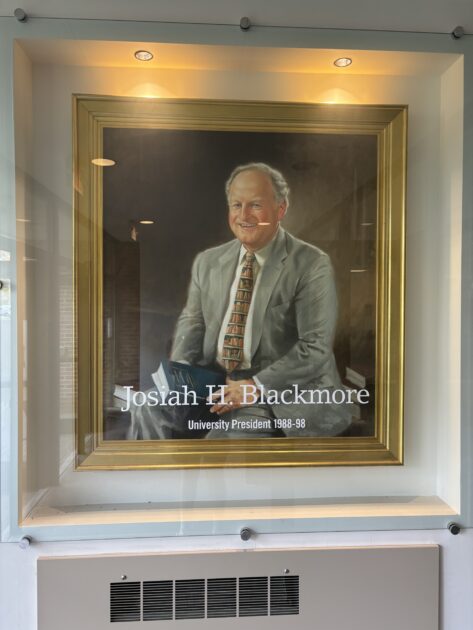
Clay N. Ruff (1888-1969)
The Ruff Memorial Center is named after Clay N. Ruff. According to the plan for the education center from 1975, Ruff donated over $424,000 to the university on top of over $100,000 toward the American Lutheran Church. At that time, Ruff was the second highest donor to the university.
Julius W. Schaaf (1869-1995)
The Schaaf Hall residence hall is named after Julius W. Schaaf. According to a 1962 article about the dedication of Schaaf Hall, Schaaf was a farmer in Berea, Ohio. He donated $100,000 to the university and had the residence hall named after him in honor of his financial contributions.
Josiah H. Blackmore (1932-2007)
Blackmore Library is named after Josiah H. Blackmore. A portrait of Blackmore is visible when entering the library from the Main Street side entrance.
Blackmore was the university president from 1988-1998. In 1969, Blackmore came to the university’s law school to teach as an adjunct professor. He became a full time professor one year later. In 1979, Blackmore became acting dean, and in 1980, he became the dean of the law school, overseeing the transition from the law school’s original location to the former Grange Building on South High Street.
Blackmore sought to “acquire accreditation from the Association of American Law Schools—putting the school on equal footing with Ohio’s other law schools.” Blackmore was the interim president of the university in 1987 before becoming president one year later, serving until 1998. He was the university’s first non-Lutheran president.


